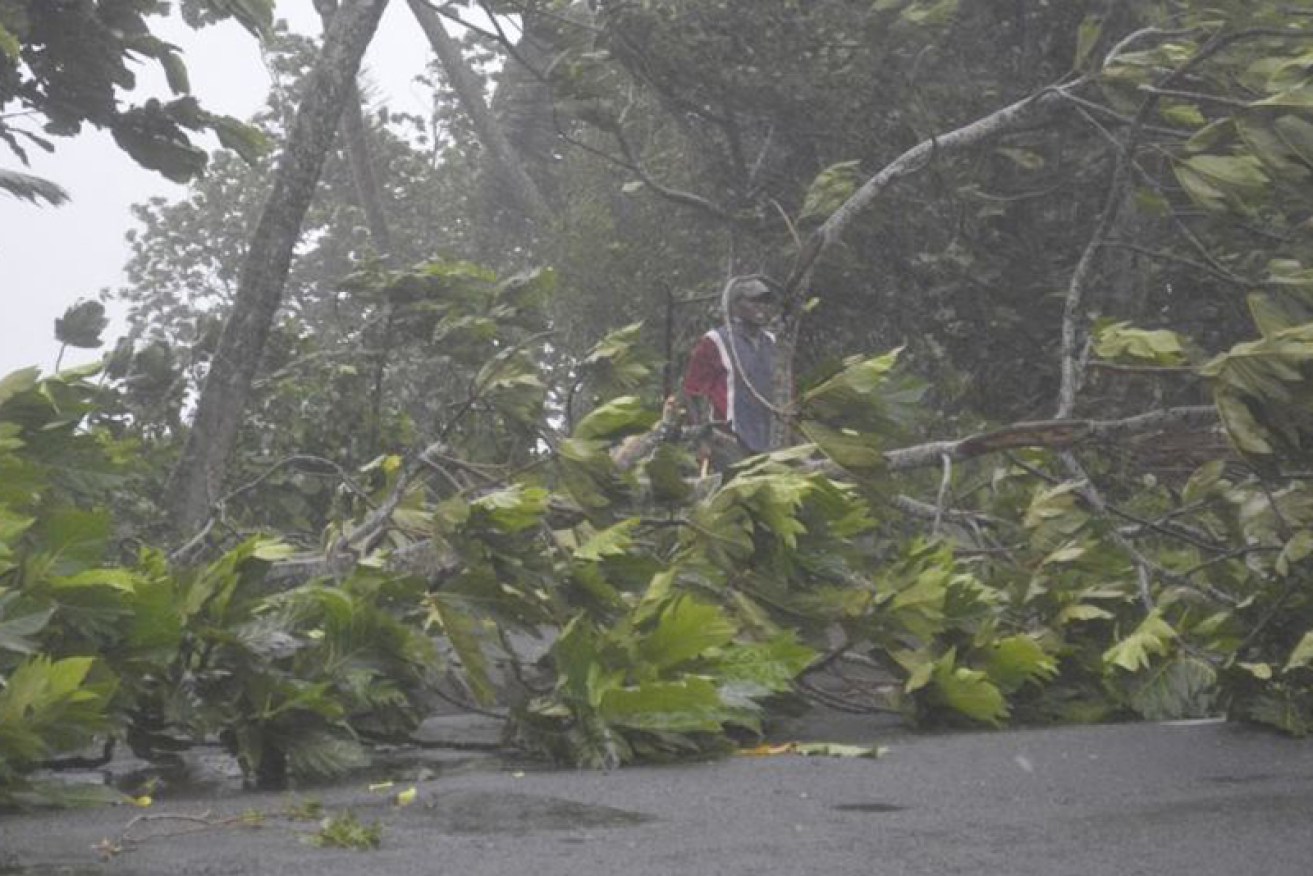Cyclone Winston death toll climbs to five

Trees have fallen on the Fiji mainland. Supplied: Joe Yaya
The death toll in Fiji has risen to five after torrential rain and strong winds brought on by Tropical Cyclone Winston lashed the country.

Guests at the Sheraton Hotel in Nadi are evacuated to the ballroom.
Supplied
Prime Minister Frank Bainimarama confirmed the death toll, saying officials were working urgently to “assess and address the damage in our maritime regions”.
Aid agencies said power outages, fallen phone lines and blocked roads had hampered the relief efforts.
• VIDEO: Tourists narrowly escape helicopter crash
• Star Wars church service and the painter with no hands
• The Northern Territory’s pub with no beer
• Tourism boom paying off for Aussie airports
Many cities are still without power and running water.
Mr Bainimarama reiterated a nation-wide curfew was still in effect, to be lifted after 5:30am local time on Monday.
The category five storm is thought to be the biggest to ever hit the Southern Hemisphere and has left a trail of destruction in its wake as it moves west away from Fiji.
At its strongest, it was generating winds of up to 330 kilometres per hour with average wind speeds of 220 kilometres per hour.
“The damage has been widespread. Homes have been destroyed, many low-lying areas have flooded and many people have been left stunned and confused about what to do,” Mr Bainimarama said.
A 30-day state of natural disaster was called as the cyclone hit on Saturday.
Fears death toll will continue to rise
One of those who died was an elderly man who was killed on Koro Island when a roof fell on him, authorities said earlier.
In a nearby village, 50 homes were reported to have been destroyed.
Anna Cowley, CARE Australia’s emergency advisor in Fiji, said there were grave fears the death toll would rise beyond five.
“Because some of the areas where the information is slow to come into the national emergency operations centre is from the Western division, it probably will rise,” she said.
Ms Cowley said it was hard to evaluate how widespread the destruction was, “but from what we are hearing, the damage will be tremendous”.
The University of the South Pacific, the University of Fiji and the Fiji National University were shut until further notice, with many schools across the country closed for at least the next week.
Alice Clements, an official with UNICEF based in Suva, said she was concerned for hundreds of people who live in low-lying river areas in tin sheds, cultivating backyard crops for subsistence and sale in markets.
“The images that we’re starting to see roll in are terrifying,” she said.
The cyclone left Fiji’s waters tracking towards Vanuatu this afternoon.
Heavy rain and strong wind warnings remain in place for all of Fiji.








